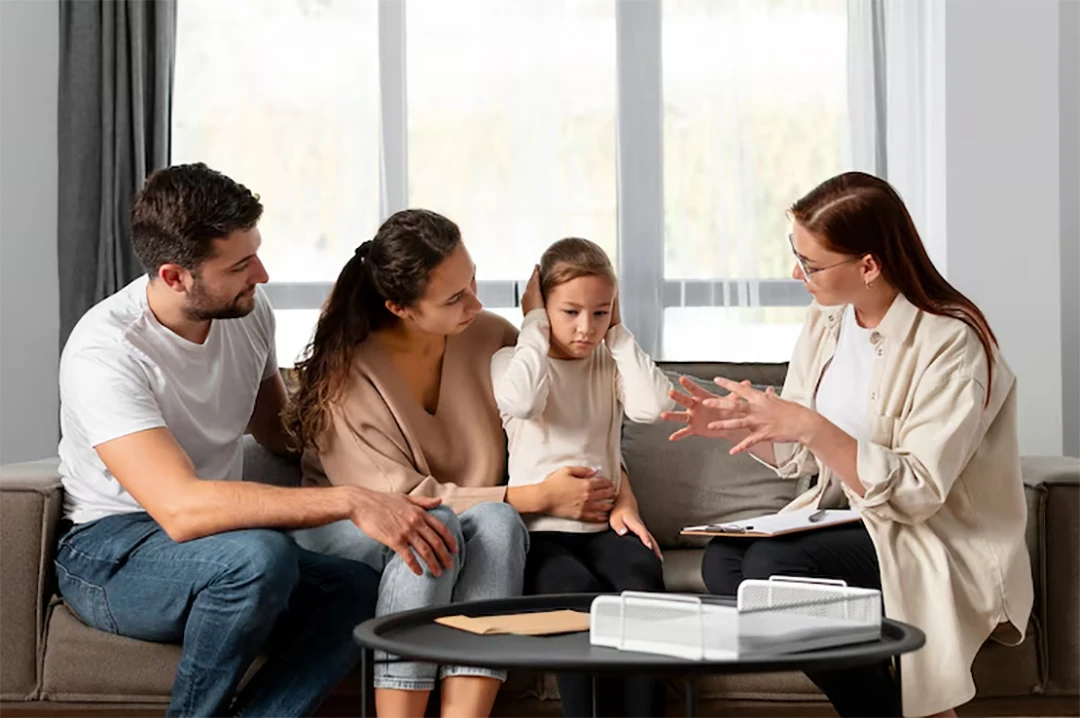
Family is often described as the backbone of society. It is within families that we learn about love, support, and the foundations of our values and beliefs. However, family dynamics can be complicated, and conflicts are a natural part of relationships. This is where family counseling therapy comes into play, offering a structured environment for families to address their challenges and strengthen their bonds. In this blog, we will explore the importance of family counselling therapy Worcester, its benefits, and how it can lead to healthier family relationships. Read more to have a healthy and happy family in Worcester.
Understanding Family Counseling Therapy
Family counseling therapy, also known as family therapy Worcester, involves a licensed therapist working with families to improve communication, resolve conflicts, and foster understanding among family members. The approach is systemic, meaning that it considers the family as a unit rather than focusing solely on individual members. By examining relationships and patterns within the family system, therapists can help families navigate their issues effectively.
The Importance of Open Communication
One of the key components of healthy family dynamics is open communication. In many families, members may struggle to express their thoughts and feelings openly. Miscommunication can lead to misunderstandings, resentment, and conflict. Family counseling provides a safe space for family members to express their concerns and feelings in a constructive manner. A therapist facilitates discussions, ensuring that everyone has an opportunity to be heard, which can significantly improve family communication.
Breaking Down Barriers
Family therapy encourages family members to break down emotional barriers that may have developed over time. This might include addressing past grievances, unspoken resentments, or misunderstandings. Through guided discussions, family members can begin to understand each other’s perspectives, fostering empathy and compassion.
Conflict Resolution
Conflict is an inevitable part of family life. Whether it’s sibling rivalry, disagreements between parents, or issues related to extended family, unresolved conflicts can create a toxic atmosphere. Family counseling equips families with the tools to manage and resolve conflicts effectively. Therapists teach conflict resolution strategies, helping family members learn how to navigate disagreements without escalating tensions.
Developing Healthy Coping Mechanisms
Through therapy, families can identify unhealthy patterns of behavior that contribute to conflict. A therapist can help family members develop healthier coping mechanisms, such as active listening, expressing feelings constructively, and finding compromise. These skills can lead to more positive interactions and reduce the likelihood of future conflicts.
Strengthening Relationships
Family counseling can be instrumental in strengthening relationships among family members. By working through issues together, families can build a sense of unity and support. Therapy sessions often involve exercises that promote bonding, such as shared activities or open dialogue about individual needs and feelings.
Rebuilding Trust
Trust is a vital component of any healthy relationship, and it can be particularly fragile in family dynamics. Whether due to betrayal, secrecy, or misunderstanding, trust can be damaged over time. Family counseling provides a framework for rebuilding trust through transparency and accountability. Therapists encourage family members to express their feelings and work towards rebuilding trust in a supportive environment.
Addressing Specific Issues
Family counseling is also effective for addressing specific issues that may be affecting the family unit. These can include:
Parenting Challenges
Many parents struggle with finding effective parenting strategies or face disagreements about parenting styles. Family therapy can help parents align their approaches and work together to create a cohesive parenting strategy.
Dealing with Grief and Loss
Loss can deeply affect family dynamics. Whether it’s the death of a loved one or the end of a relationship, families can benefit from counseling to navigate their grief together and find healthy ways to support one another.
Managing Mental Health Issues
Mental health challenges can impact the entire family. Family therapy provides a space for families to discuss the implications of mental health issues, learn how to support each other, and address any stigma or misunderstandings that may exist.
Substance Abuse
If a family member is struggling with substance abuse, it can create significant strain on the entire family. Family counseling can help families understand addiction, learn how to support their loved one, and set healthy boundaries.
The Role of the Therapist
A qualified family therapist plays a crucial role in guiding the therapeutic process. They are trained to recognize family dynamics, patterns of behavior, and underlying issues. The therapist acts as a neutral mediator, helping to facilitate conversations and ensuring that all voices are heard. This neutrality is essential, as it allows family members to feel safe and supported in expressing their feelings.
Tailoring the Approach
Each family is unique, and a skilled therapist will tailor their approach to meet the specific needs of the family. This may involve different therapeutic techniques, such as cognitive-behavioral therapy, narrative therapy, or solution-focused therapy, depending on the issues at hand.
The Long-Term Benefits of Family Counseling
The benefits of family counseling extend beyond the therapy sessions. Families that engage in counseling often report long-term improvements in their relationships. These may include:
Enhanced Communication Skills: Families learn to communicate effectively, reducing misunderstandings and conflicts.
Stronger Relationships: Bonds between family members deepen as they learn to support each other better.
Improved Conflict Resolution: Families become adept at resolving conflicts constructively, reducing stress and tension.
Increased Empathy: Understanding each other’s perspectives fosters compassion and strengthens relationships.
Healthier Family Dynamics: The overall atmosphere within the family becomes more positive and nurturing.
The Bottom Line
Family counseling therapy is an invaluable resource for families facing challenges. It provides a safe space for open communication, conflict resolution, and healing. By working together with a therapist, families can strengthen their relationships, enhance their communication skills, and develop a deeper understanding of one another. In a world where family dynamics can be complex, the importance of family counseling cannot be overstated. It offers families the opportunity to grow, heal, and thrive together. If you’re experiencing difficulties within your family, consider seeking the guidance of a qualified family therapist. The journey towards a healthier family dynamic is worth taking.
Comments
comments